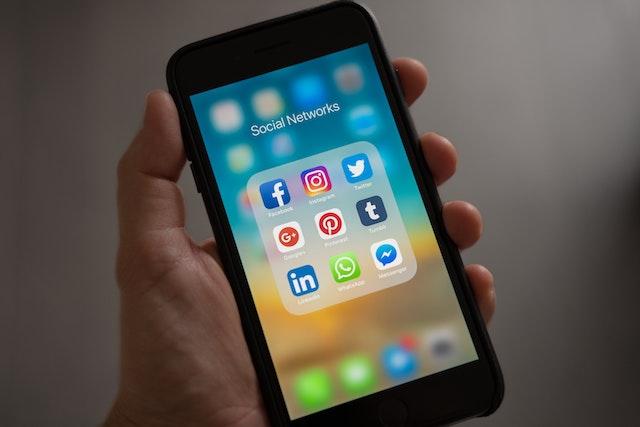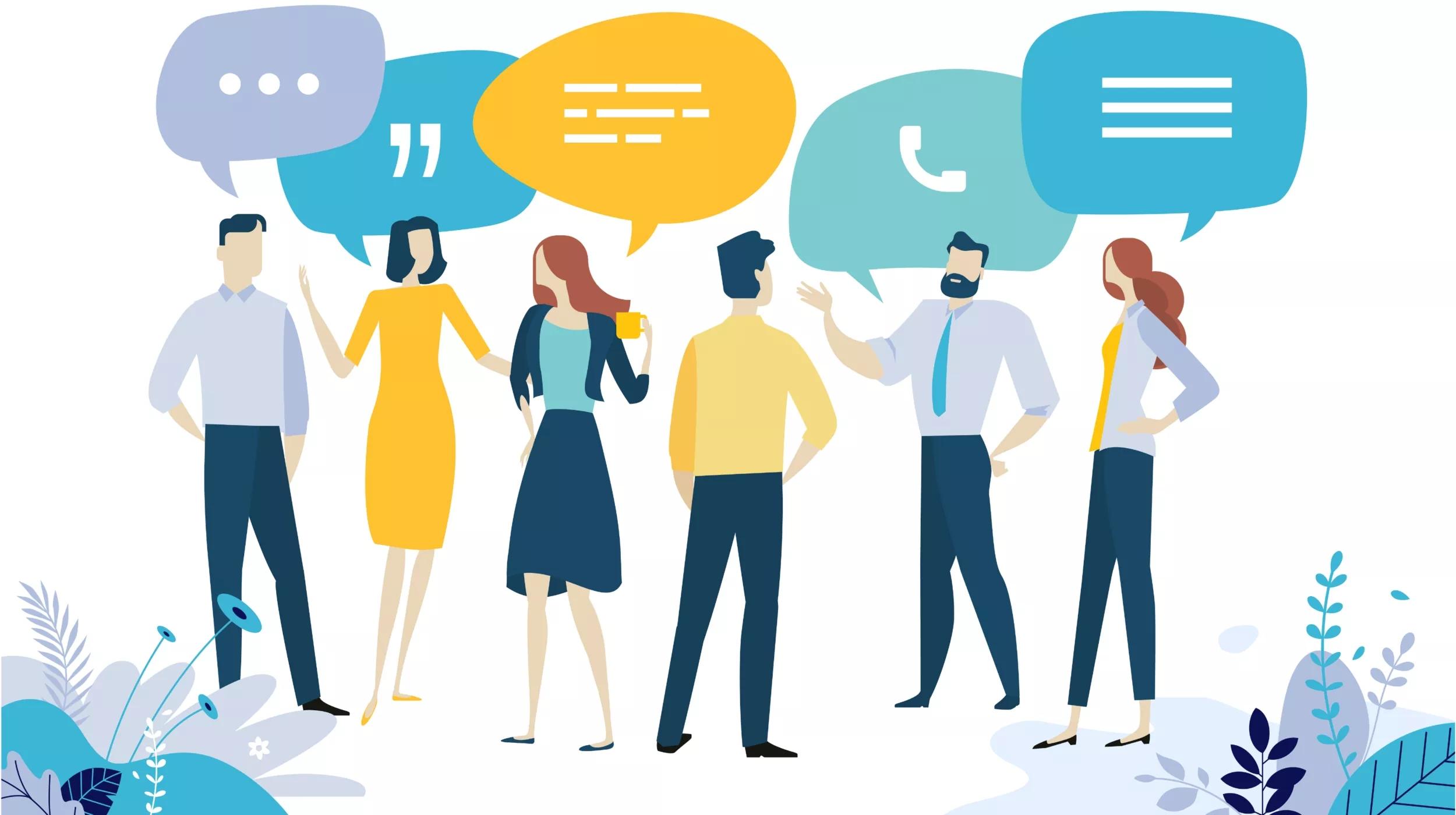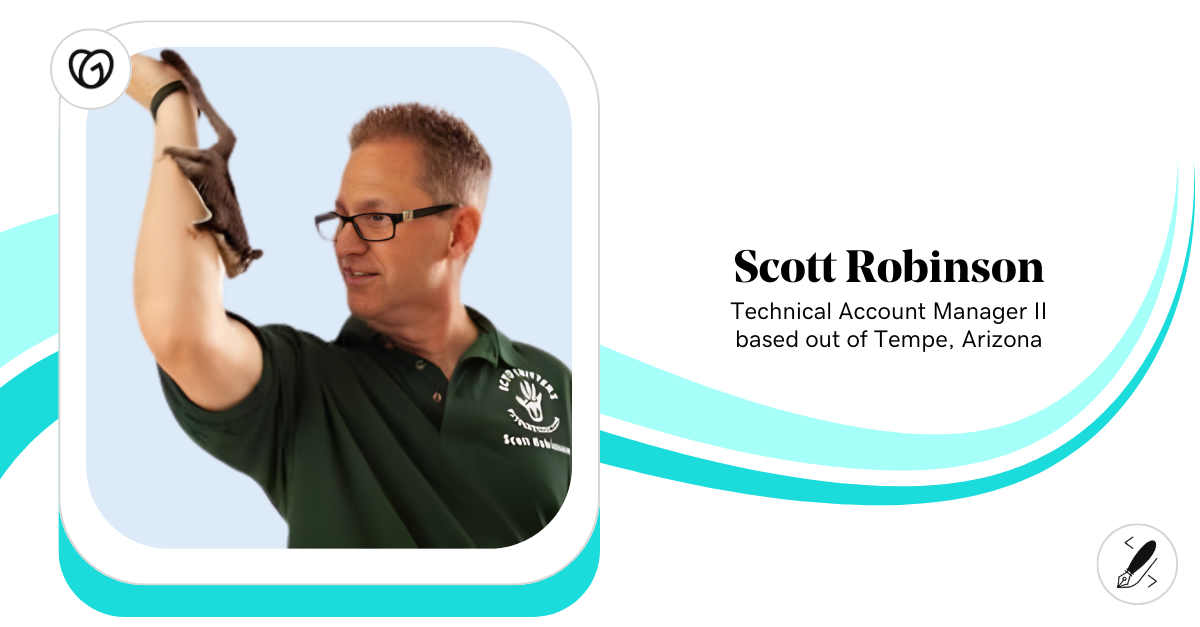There are plenty of articles for introverts about how to network, but there aren’t too many that try to help extroverts network properly. The assumption is that we’re outgoing, gregarious, and can’t wait to talk to people, which means we must do it properly, right? Wrong.
This article offers tips on how to network for both extroverts and introverts. We’ll also discuss how to avoid pushing people away, either by being overbearing or only sticking to the people you know.
Extroverts vs. introverts: What’s the difference?
Extroverts can struggle with effective networking because they rely too much on their outgoing personalities and love of talking to people to carry the day.
The problem is, most extroverted networkers — especially those who haven’t learned how to network — are just distributing business cards haphazardly at events. As a result, they’re about as memorable as the people who never actually engage in meaningful conversations.
What’s the point of networking?
The whole point of networking is to meet people who can help you in your career or support your company. It’s not about making a sale or beefing up your contact list.
You’re not there to find your next client or see how many business cards you can collect. And you’re certainly not there to add subscribers to your email list.
Freelance workers or those in more “lonely” careers – think web designer, web developer, artist – need to occasionally challenge themselves to step outside that comfort zone.
While it’s truly awesome to spend the day hunkered down, working on the couch in your favorite socks or alone in your studio, don’t forget about human contact. That’s how networking happens.
Relationship building vs. networking
Relationship building goes beyond traditional networking by focusing on mutual support and shared values rather than transactional exchanges.
Instead of merely expanding your contact list, relationship building aims to create genuine connections that are both meaningful and lasting.
This approach encourages helping others based on your strengths and interests, fostering an inclusive environment where professional ties are built on trust and understanding.
By engaging in intimate conversations and connecting with both new and existing contacts, you can develop a network that supports your career growth and personal development.
Cultivate a strong personal brand
Enhancing your networking strategies involves cultivating a strong personal brand that leaves a memorable impression on your contacts. Consider creating a website — it’s easy to do so with GoDaddy Website Builder.
Additionally, ensure your social media profiles are up-to-date. Maintain active accounts on platforms like LinkedIn and X/Twitter, as well as any other industry-specific social media channels relevant to your field.
A well-maintained online presence reinforces your personal brand and makes it easier for contacts to engage with you.
Develop a compelling elevator pitch
Having a well-crafted elevator pitch is essential for effectively summarizing your professional background and goals during networking interactions.
It allows you to present yourself confidently and make a memorable impression without feeling transactional. To develop a compelling elevator pitch:
Know your strengths and goals
Reflect on what you’re good at and what you aim to achieve in your career. This self-awareness will help you communicate your value clearly.
Keep it concise
Aim for a 30-second summary that highlights your background, skills, and professional aspirations. Avoid jargon and keep the language simple.
Practice delivery
Rehearse your elevator pitch until it feels natural. This will help you convey confidence and authenticity during networking interactions.
Tailor to your audience
Depending on who you’re speaking with, adjust your pitch to align with their interests or needs. This shows attentiveness and makes your pitch more relevant.
Seek feedback
Share your elevator pitch with trusted colleagues or mentors to gain constructive feedback and make necessary improvements.
By developing a compelling elevator pitch, you’re better equipped to introduce yourself in a way that fosters genuine connections and opens the door to meaningful conversations.
Developing adaptability in your networking approaches
To effectively engage with diverse individuals and situations, it’s important to develop adaptability in your networking approaches.
Networking is not just about meeting new people; it’s also about reconnecting with individuals you’ve known but haven’t interacted with recently.
Use networking as an opportunity to help others by leveraging your strengths and interests. Think about what you’re good at, what you like to do, and what others often ask you to help with.
Instead of relying solely on small talk, engage in more intimate conversations that allow both parties to become vulnerable, fostering genuine connections.
Additionally, understanding and owning your identity, recognizing your strengths, and building confidence can help make your networking interactions more inclusive and effective.
How to network and why it’s important

There are three simple rules about networking that apply to all small business marketing and sales, as well as personal branding.
- People buy from people they like and trust.
- The point of networking is to build relationships.
- The point of a networking event is to set up your next meeting.
At your typical networking event — business after hours, morning events, cocktail parties — the goal of networking is not to find your next client or investor.
That should be the furthest thing from your mind. Let me say this as clearly as possible: you will not make a sale at a networking event.
For one thing, most people who attend networking events are already wary of being approached by every multi-level marketer and salesperson in the room.
Just because you chatted with someone for five minutes at a busy event doesn’t mean they like or trust you. They may not even remember you. So don’t think you can sell to them.
Bottom line: don’t show up at a networking event with a selling mindset. You’re there to build relationships, not make a sale. You’re there to meet people you can get to know better.
Set clear networking goals
Setting clear networking goals is essential to guide your strategy and ensure your efforts align with your professional objectives. Start by reflecting on what you’re good at and what you enjoy doing.
Identify how you can leverage your strengths to help others in your network. Consider reconnecting with people you’ve known for a while but haven’t interacted with recently.
Attending a variety of events such as conventions, industry-specific conferences, and smaller, intimate gatherings with a clear agenda can help you make meaningful and high-quality connections.
Use networking as an opportunity to build genuine connections rather than seeking immediate personal gain. Focus on understanding your strengths, becoming confident in your interactions, and fostering inclusive relationships.
By owning your identity and recognizing your value, you can set meaningful goals that promote authentic and supportive networking relationships.
The purpose of networking is to build trust
There’s an adage in job hunting that applies here: Your cover letter doesn’t get you the job; it gets them to read your résumé.
Your résumé doesn’t get you the job; it gets you a phone interview. The phone interview doesn’t get you the job; it gets you an in-person interview. The in-person interview that gets you the job.
The same goes with networking: Your introduction doesn’t get you a sale; it gets you a coffee meeting. The coffee meeting doesn’t get you the sale; it gets you a lunch invitation. Lunch doesn’t get the sale; it gets you a sales demonstration.
It’s the demonstration that gets you the sale. Which means you don’t show up at a networking event in sales demo mode. You show up because you want to meet people for coffee.
If anything, the people you meet at networking events are not your clients; they know your clients. Do you want to meet angel investors in your company?
Angel investors typically don’t attend your run-of-the-mill networking meetings, but their friends do. Do you want to meet the buyer for a large manufacturer in your area?
She doesn’t attend networking meetings, but her former colleague might. Do you want to meet the person in charge of payroll at a marketing agency? He certainly doesn’t attend networking meetings, but his business development person does.
The whole reason to network is so you can meet the people who can introduce you to the people you actually want to meet. If you went to a networking event with a sales mindset, and those people were your target audience, then the meeting was most definitely a failure because you didn’t meet any of them.
Strategies for reconnecting with existing contacts
Networking isn’t just about meeting new people; it’s equally important to reconnect with existing contacts you haven’t interacted with recently. Strengthening these relationships can provide a solid foundation for your network.
1. Reach out with genuine interest
Start by reaching out to your past contacts with a sincere message. Express genuine interest in their current endeavors and share updates about your own journey. Avoid making it about what you can gain; instead, focus on rekindling the relationship.
2. Offer assistance first
Before seeking help, think about what you can offer them. Whether it’s sharing resources, providing introductions, or offering your expertise, showing that you want to help others fosters mutual trust and strengthens your connection.
3. Schedule follow-up meetings
After reconnecting, suggest scheduling a one-on-one meeting such as a coffee chat or a Zoom call. This allows for a more in-depth conversation and helps in re-establishing a meaningful connection.
4. Engage in meaningful conversations
Move beyond superficial topics. Ask about their recent projects, challenges, and achievements. Sharing personal and professional insights can help both parties feel more connected and understood.
5. Make strategic introductions
Introduce your contacts to others in your network who can benefit them. Facilitating connections shows that you value their success and are invested in their growth, which in turn strengthens your relationship.
Steps to network successfully for personal and small business efforts
Many people treat networking events like a numbers game. They attend as many as they can and try to meet as many people as possible.
It’s a high-energy sprint from start to finish as they interrupt conversations, introduce themselves, hand out business cards, and move on to the next conversation. This is an ineffective approach.
Your goal at a networking event is not to see how many business cards you can collect or distribute. I’ve known sales professionals who base an event’s success on how many business cards they give out.
This is absolutely the wrong way to think about it. A better strategy is to give out a few business cards only to those you find genuinely interesting and worth following up with.
When you meet someone you’d like to have lunch or coffee with, ask them for a card and give them one of yours. Don’t refuse to give one if you’re asked for it. It’s courteous to provide a business card when requested.
The goal is to exchange two or three business cards and receive two or three as well. This ensures you focus on meaningful connections rather than quantity. You want to meet people you enjoyed talking with and would like to engage with further.
With all that in mind, here are five steps to take to have meaningful conversations and exchange those rare business cards.
Step 1: Focus on talking with people for more than five minutes
Engage in conversations and get to know them. Discover interesting things about them and start to build rapport that makes you want to spend more time with them.
Step 2: Schedule one or two follow-up meetings
An event is successful if you schedule one or two meetings after the appointment. You don’t need many meetings from one event. Aim for quality over quantity.
Step 3: Make interesting conversations
A networking event is one of the few places where it’s socially acceptable to ask people what they do for a living. It’s even expected. However, everyone asks that question, and no one really stands out.
So ask unusual questions of the people you meet. You’ll remember their answers, and they’ll remember you as the person who asked those engaging questions.
- What kind of job did you want when you were a kid?
- When was the last time someone amazed you?
- Who was your favorite teacher or professor?
- What do you wish you knew when you were a teenager?
- What’s your favorite non-business book or podcast?
- If you were to teach a class on your favorite subject, what would it be?
- Cake or pie. (Seriously, ask people this and then ask why they picked it. I’ve seen — and started — several spirited discussions as people defend their answers. Also, pie is the correct answer. — Erik)
Step 4: Introduce people
You can really show people that you’ve paid attention by introducing them to someone else. If I’ve just met someone, I’ll ask them their name and what they do, so whenever someone new joins our conversation, I can introduce them to the new person:
"This is Charlotte Davidson. She owns a catering company and specializes in corporate events, but she got her start doing weddings."
Being able to recite that shows Charlotte I’ve been paying attention and was focused on her. Remembering their name, job, and something interesting about them makes people feel appreciated and heard. This is where practicing active listening becomes so important.
Step 5: Make strategic introductions
As you continue to network, you’ll meet people who share the same interests as others you’ve just met. For example, 20 minutes after you meet Charlotte Davidson, the corporate caterer, you meet Carl DeLong, an event organizer.
You’ll say, "Come with me, I want to introduce you to someone."
You and Carl track down Charlotte, and you introduce them, explaining why they should meet. "Carl, this is Charlotte Davidson. She owns a catering company that specializes in corporate events. Charlotte, this is Carl DeLong, and he does corporate event planning. Since you’re both in the corporate event space, I thought it was important that you two meet."
You can also do this via email if one person is not readily available.
Step 6: Implement personalized follow-up strategies
After networking events, it’s essential to nurture and strengthen the connections you’ve made. Implement personalized follow-up strategies by sending tailored messages via LinkedIn, email, or other platforms.
This helps in fostering genuine relationships and ensures that the connections remain meaningful and beneficial.
Here’s how to do it effectively:
Tailor your messages
Reference specific details from your conversation to show genuine interest and attentiveness.
Provide value
Offer something beneficial, such as sharing relevant resources, articles, or making introductions that could help them.
Be consistent
Maintain regular contact without being intrusive to keep the relationship active and growing.
By adopting these personalized follow-up strategies, you enhance the quality of your network and build lasting professional relationships that go beyond initial meetings.
Real-world tips and examples, especially when networking online

Successful networking is more than just meeting people. Meeting people is not networking. Meeting people is simply encountering new individuals.
I can go to a baseball game or basketball game and introduce myself to a few hundred people every single day. Does it get me any business? No.
I can attend a networking meeting every morning and meet a few hundred people every month.
Does it get me any business? No.
In fact, several years ago, I attended three different networking meetings per week, both morning and evening. I met hundreds of people and drank enough coffee to float a battleship.
The one secret I’ve found to being a good networker is helping people get the things they want before getting what you want.
And this works whether you’re meeting someone in person or via Zoom. Going back to our example, my priority in networking should be introducing people like Charlotte and Carl to each other.
Once I meet Charlotte, one of my goals should be to help her meet people that will grow her business. I need to keep an eye out for people like Carl so I can introduce them to Charlotte.
My goal should never be to find out who Charlotte or Carl can introduce me to. That will come later after I help them achieve their goals.
In fact, the more people I help, the more my own goals will be realized. You can call it whatever you want: blessings, karma, cool points, whatever.
But I have found that the more I help people, the more people will help me in return. The more bounty I create, the more bounty I receive.
I do it by practicing what BNI (Business Networking International) calls "Givers Gain." That is, if you give, you gain. If you give a lot, you gain a lot.
If you help people, you will get helped. Not just by the people you helped directly, but by those who were indirectly helped because of your actions.
If you make this a regular habit, you’ll see your "returns" grow more than if you had just pursued the "I’ll help myself first" strategy that so many people often do.
It all starts with the first time you meet someone at a networking meeting. After you get their name and occupation, ask them, "Who are you trying to meet?" or "How can I help you?"
The idea is to get them to tell you who they’re trying to meet so you can immediately start working on their behalf.
No one owes you a favor
This is the tricky part of this philosophy: Once you have done something for someone, you have to forget about it. Banish it from your thoughts.
Don’t keep track. Don’t tally favors. Never, ever tell someone, "You owe me one." Because nobody owes you.
If that’s the mindset you carry through your networking efforts, you will find yourself alone in your journey because no one wants to be a part of that kind of system.
No one wants to have you keep tabs on them, tallying up every favor and introduction like a miser hunched over his ledger, counting his coins. It’s boring, tedious, and wastes a lot of energy you could be using just to grow your network.
If you keep track of the favors people owe you, they’ll make sure they pay it immediately and never help you again. And this will become part of your reputation, which will make people avoid you.
But if your reputation is that of a person who helps other people and never expects to have the favor returned, people will flock to help you.
You’ll become a trusted resource for the people trying to help others. They’ll contact you to see if you know anyone they can introduce their friends to.
You’ll be the person who makes connections happen. As you become a connector, you’ll become more connected, and you’ll hear about work and job opportunities that are actually in your wheelhouse.
People will share them with you, whether you’ve helped them directly or not. But they won’t do that if you’re keeping track of who owes you one.
How to network with social media

Social media has been a great way to network with others, but it is not an ideal replacement for in-person networking. It’s an additional tool, not a replacement tool.
The best way to network with social media is to reach out and connect with potential networking targets on Twitter or LinkedIn.
This could be the creative director at a marketing agency, the CTO at a software company, or anyone you’ve set your sights on.
I prefer social media for this purpose because, with phone and email, your contact might have a gatekeeper who filters their messages. That means if you connect with them on Twitter or LinkedIn, you have a chance to communicate directly.
But that means no stalking, no pestering, and no inappropriate conversations. Instead, just have regular conversations with the person. If they ask questions, answer them.
Ask them questions. Share news and blog articles that may interest them. Keep it casual and light, and don’t go straight for the sales pitch.
I can’t tell you the number of times I’ve connected with someone on LinkedIn only for them to use it as a platform for a sales pitch as the very first communication.
They clearly didn’t take the time to get to know me, ask me questions, or even see if the thing they’re selling is something I would ever need in the first place. So I usually disconnect with that person immediately.
If you want to establish a relationship with someone, think about your initial communications, like the initial meeting at a networking group.
Communicate with them, share ideas, and ask if they would like to meet up for coffee (if they’re local to you) or a Zoom call.
There’s no magic formula. Just say, "I’m a big believer in networking and getting to know important people. I was interested in learning more about what you do and wanted to see if you were free for coffee or a Zoom meeting.
This isn’t a sales call, and I won’t try to sell you anything." Then have your regular meeting via coffee or Zoom, just like if you had met this person at an in-person or online networking meeting.
Ask them questions, actively listen, and offer to help them meet anyone they’ve been looking for.
An added online bonus
A social network I joined in late 2020 during the pandemic has been an interesting way to meet people. It’s called Lunchclub, and it’s been a great way to meet people I would never have met in real life.
You enter your information on the website, and it uses its matching algorithm to pair you with someone you might have a connection with.
I’ve met TV writers, graphic novel writers, business owners, event planners, linguists, concert organizers, and software developers. I’ve connected with people from Los Angeles, Boston, Vancouver, Hungary, the UK, Mexico, and South Africa.
We’ve discussed used bookstores, humor writing, TV writing, comic books, and even hip-hop klezmer music.
You can sign up for an invite and join the system. You can even specify the types of people you want to meet, as a way to connect with possible clients or vendors, or simply to meet interesting individuals. (That’s the option I select; it never lets me down.)
The whole purpose of Lunchclub is to meet new people. There’s no fumbling around, trying to figure out if that person really does want to meet later. You just have the conversation, and if you want to meet online later, you can set that up as well.
Conclusions/next steps
If you’re not sure where to start networking, check with your local Chamber of Commerce first. See if they offer any business after-hours or morning coffee events, especially for non-members. Start there and see how things go.
Next, look for local networking groups. There are groups like 1 Million Cups (I help run the local Orlando chapter). BNI (Business Networking International), or any local Meetup.com group that matches your interests.
You can also just network with people you meet out in the wild, like standing in line at a coffee shop, at the gym, or even bumping into someone at the grocery store.
Just ask them, "So, what do you do?" and take it from there. Build a relationship, gain the other person’s trust, and work to help them achieve their goals.






